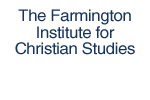|
Page 3 of 4
Examples of good practice - Using “Many Hindus believe...” or “Some Hindus believe...” rather than “Hindus believe...”
- Reflecting accurately gender balance, range of practices, ethnicity and cultures within religions, in text and illustrations.
- Checking acceptability of terminology to the faith group in question, for example “the Bahá’í Faith”, not “Bahá’ísm”
- Using original terminology rather than inaccurate translations, for example “dharma” rather than “religion”.
- Focusing on beliefs and practices which are of real importance in each religious tradition, rather than making all religions conform to one model. For example, festivals are not of equal importance in all religious traditions.
- Focusing on genuinely significant festivals, rather than those that conform to a pre-chosen theme or are easy to illustrate. For example, Hannukah is not a major Jewish festival, though it appears in many primary school texts.
- Focusing on religious and spiritual dimensions rather than simply or mainly on transient political issues.
- Relating beliefs and practices to the life experience of the reader.
What other guidance is available on Religious Education - on the law on RE?
In most schools the content of RE is determined locally, but there are some basic legal requirements that:
the school curriculum should promote the " spiritual, moral, cultural, mental and physical development of pupils" the agreed syllabus should " reflect the fact that the religious traditions of Great Britain are, in the main, Christian, while taking account of teachings and practices of the other principal religions represented in Great Britain" (Education Act 1996) Further guidance was given in DfE Circular 1/94 (10/94 in Wales), for example that “syllabuses must be non
denominational... [and] not be designed to convert pupils or urge a particular religion or religious belief on pupils"
- on Agreed Syllabuses?
Local Standing Advisory Councils on RE and local RE advisers, the National Association of SACREs and the Association of RE Advisers, Inspectors and Consultants (AREIAC) may be able to help. Though syllabuses vary, and local Agreed Syllabus Conferences make efforts to reflect the range of beliefs found in the local community in their syllabuses, they also have much in common, arising from the legal requirements and (often) QCA guidance.
- on the RE curriculum?
The QCA and, in Wales, ACCAC are good sources of general (though non-statutory) guidance. For example QCA’s Religious Education Model Syllabuses (1994) offers guidance on content, and QCA’s non-statutory schemes of work for RE and Non-statutory guidance on RE (2000) give further guidance: "RE develops pupils' knowledge and understanding of, and ability to respond to, Christianity and the other principal religions represented in Great Britain. By exploring issues within and across faiths, pupils learn to understand and respect different religions, beliefs, values and traditions (including ethical life stances), and their influence on individuals, societies, communities and cultures. RE encourages pupils to consider questions of meaning and purpose in life. Pupils learn about religious and ethical teaching, enabling them to make reasoned and informed judgements.. RE develops pupils’ skills of enquiry and response. RE encourages pupils to reflect on, analyse and evaluate their beliefs.. RE does not seek to urge religious beliefs on pupils nor compromise the integrity of their own beliefs by promoting one religion over another..."
- on the requirements of faith groups?
Please consult the faith groups, which can provide recommendations and advice. See over.
|

 Publications
Publications  Guidance Documents
Guidance Documents  Guidance for Publishers
Guidance for Publishers



